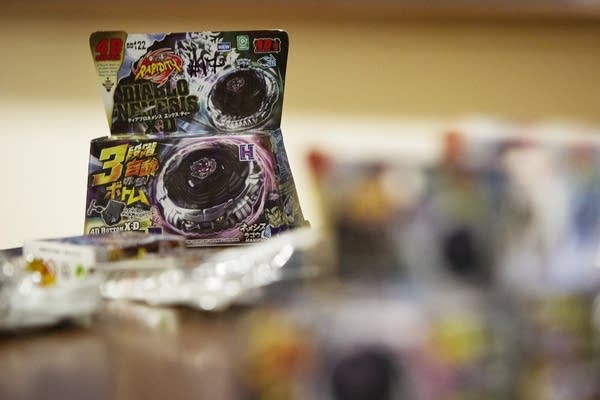Minnesota regulators move to halt sales of toxic toys

During a press conference Tuesday, Department of Commerce Commissioner Steve Kelley announced a ban on off-brand spinning battle toys that have been found to contain dangerous levels of lead and cadmium. Bleyblade-style toys from name brands like Hasbro and Takaratomy have not shown concerning levels of lead or cadmium.
Christine T. Nguyen | MPR News
Go Deeper.
Create an account or log in to save stories.
Like this?
Thanks for liking this story! We have added it to a list of your favorite stories.


